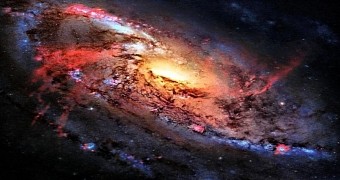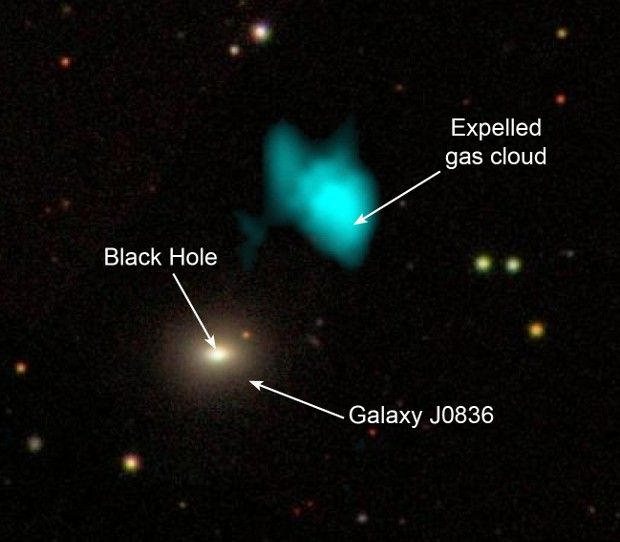Rumor has it that the average fly has a lifespan of just 24 hours. Truth be told, this isn't exactly true. On the contrary, these buzzers usually stick around for about 15 to 25 days.
Then again, it's not like dying in less than a month after being born is a whole lot better than kicking the bucket after witnessing just one sunset. Otherwise put, being a fly is still sucky as far as life expectancy goes.
As it turns out, some of the galaxies populating the cosmos are kind of, sort of like flies when it comes to how much time they have on their hands before they finally meet their demise.
How and why some galaxies die sooner than expected
In a recent paper in the journal Monthly Notices of the Royal Astronomical Society, astronomers explain that some galaxies get rid of their gas reserves almost in the blink of an eye. The result is that they can no longer birth new stars and die.
Mind you, when they say that these galaxies lose their gas reserves mind-bogglingly fast, scientists actually mean that this happens over the course of about a billion years or so.
This might sound like a whole lot of time to us mere mortals, but the thing is that it takes regular galaxies at least two billion years to undergo such a transformation. Hence the fact that those who make the shift in half this time are argued to have a surprisingly short lifespan.
Scientists with the International Centre for Radio Astronomy Research (ICRAR) say that one way for these unlucky galaxies to die prematurely is for them to have their gas reserves blown out of them by a supermassive black hole at their core.
The astronomers go on to detail that a galaxy can also meet its demise way earlier than expected after coming too close to a neighboring cosmic system and having the gas it needs to birth new stars stripped away from it during this close encounter.
“One possibility is that it could be blown out by the galaxy’s supermassive black hole. Another possibility is that the gas could be ripped out by a neighboring galaxy,” astrophysicist Ivy Wong explains in a recent interview.
Dying galaxies look different, astronomers say
In their report in the journal Monthly Notices of the Royal Astronomical Society, the scientists behind this investigation explain that, when young and busy birthing new stars, galaxies are mind-bogglingly bright and are referred to as blue galaxies.
After star formation processes cease and the stars that were birthed when their home galaxy still held impressive gas reserves begin to age, such cosmic systems are referred to as red galaxies. Their most striking feature is that they no longer show any signs of growing.

 14 DAY TRIAL //
14 DAY TRIAL // 

